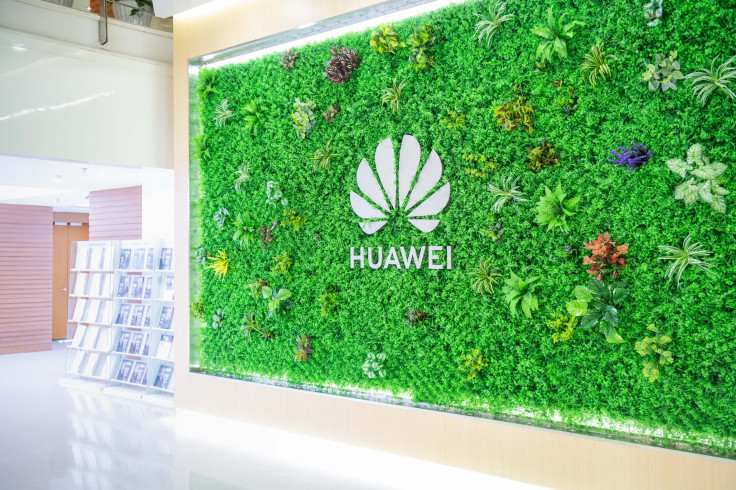Google And Microsoft Shouldn't Worry About Losing Huawei's Business

Huawei's days of using American technology could be numbered, due to the Trump administration's decision to put the Chinese tech giant on its "entity list." This means that American companies will need the U.S. government's permission before selling any products to Huawei.
The Trump administration granted a 90-day reprieve for Huawei in mid-May to allow companies to fulfill their contractual obligations and security updates for existing products. However, Huawei remains barred from using American technology in new products -- which casts a dark cloud over its entire business.
Yet Huawei was already preparing for this worst-case scenario by developing its own hardware and software. The company recently stated that it could launch its own operating systems for smartphones and PCs by the end of the year -- which would cut Alphabet's (NASDAQ:GOOG) (NASDAQ:GOOGL) Google and Microsoft (NASDAQ:MSFT) out of the loop.
Huawei's consumer business CEO, Richard Yu, recently told CNBC that the company still preferred using Google's and Microsoft's software, but that it would start using its "plan B" operating systems if regulators left it with "no other choice." That sounds like a dire warning, but a closer look at the numbers indicates that the two tech giants can afford to lose Huawei's business.
A drop in the pond for Google
Google initially revoked Huawei's Android license shortly after the entity-list announcement. However, the license was temporarily restored by the 90-day reprieve. Android is an open-source operating system, but Google's version is integrated with its own services. If Huawei loses Google's Android license, it must develop its own version of Android -- like Amazon's Fire OS -- without Google's apps.
Google generates most of its Android revenue from the Google Play Store. The Play Store is blocked in China, so Huawei's 28% share of China's smartphone market (according to Counterpoint) doesn't matter too much to Google.
However, Huawei also controlled nearly a quarter of Europe's smartphone market last year, according to Canalys, and nearly 12% of the Latin American market. Huawei already pre-installs its own Android app store, AppGallery, on all its devices -- which could become the only choice for Huawei users if it loses Google's Android license.
Sensor Tower estimates that Google Play generated $24.8 billion in revenue in 2018. Google's 30% cut of those sales would equal about $7.4 billion, or 5% of Alphabet's sales last year. Within that total, Nomura Instinet estimates that Google generates up to $425 million annually from Huawei -- which would account for a mere 0.3% of Alphabet's 2018 sales.
Why Microsoft can afford to lose Huawei
Huawei entered the crowded PC market two years ago and claimed that it would become the world's top vendor within five years. However, the market was still dominated by HP, Lenovo(NASDAQOTH:LNVGY), Dell, Apple, and Acer in the first quarter of 2019, according to IDC.
Those five companies controlled more than three-quarters of the market, with all the others -- including Huawei -- fighting over the remaining slice. Canalys claims that Huawei controlled just 2% of the laptop market last year.
Microsoft generates most of its revenue from Huawei through Windows licenses, which accounted for 16% of its sales during the first nine months of 2019. Huawei also contributed to Microsoft's server products and cloud services revenue, which accounted for a quarter of its sales during that period.
Microsoft recently pulled Huawei's laptops from its store and cut off its server products from its cloud platform Azure. However, Microsoft remains silent about pulling Huawei's Windows license -- since it could spook Chinese PC makers like Lenovo and government agencies into using their own operating systems.
China temporarily banned Windows on government PCs several years ago, and pulling the plug on Huawei could reignite those tensions. Therefore, Microsoft can likely afford to lose Huawei's business, but the unpredictable aftershocks could cause other headaches.
Investors should ignore the noise
Huawei is making a lot of noise about ditching Google and Microsoft, but it's in a much weaker position than those tech giants. A permanent ban on U.S. technologies would not only cut off Huawei from Google's and Microsoft's operating systems -- it would cut it off from crucial chips and wireless technologies.
Those bans would cripple Huawei's consumer business, which generated nearly half its sales last year. Therefore, Google and Microsoft can afford to lose Huawei's business, but it's unclear if Huawei's business can survive the loss of Google Android, Windows, Azure, and other American technologies.
John Mackey, CEO of Whole Foods Market, an Amazon subsidiary, is a member of The Motley Fool's board of directors. Suzanne Frey, an executive at Alphabet, is a member of The Motley Fool's board of directors. Teresa Kersten, an employee of LinkedIn, a Microsoft subsidiary, is a member of The Motley Fool's board of directors. Leo Sun owns shares of Amazon, Apple, and HP. The Motley Fool owns shares of and recommends Alphabet (A shares), Alphabet (C shares), Amazon, Apple, and Microsoft. The Motley Fool has the following options: long January 2020 $150 calls on Apple and short January 2020 $155 calls on Apple. The Motley Fool has a disclosure policy.
This article originally appeared on The Motley Fool.





















